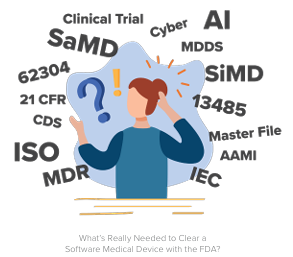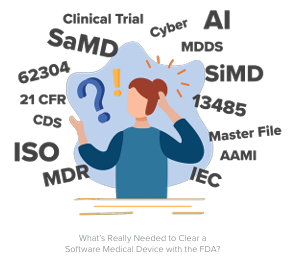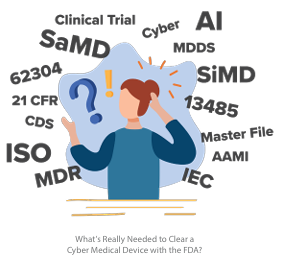Resources
-
Navigating FDA Cybersecurity Requirements for Medical Devices
Read More
-

How to Clear a Software Medical Device with the FDA
Read More
-

What the New European Union Medical Device Regulations(EU MDR) Mean for You
Read More
-

The Rapid Rise of Digital HealthTechnology: Challenges andKeys to Success
Read More
-

Unlocking Success: FDA Regulatory Strategies for AgeTech Devices and AI
Read More
-

No Code, Low Code, and Custom Code – How to Evaluate your Software Options | Project Medtech
Read More
-

Ensuring FDA Compliance for Your Digital Health Solution – Jama Software
Read More
-

Avoid RTA (Refuse to Accept) with the Right Medical Device Cybersecurity Strategy
Read More
-

How to Avoid Pitfalls When Planning an FDA Submission, Based on Real World Experiences
Read More
-

Webinar: My Software is a Medical Device (SaMD). Now What?
Read More









